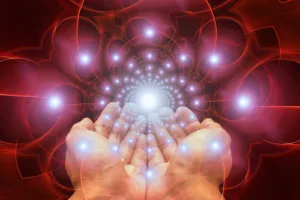
Depression is a common mental health problem that affects millions of people worldwide. It causes feelings of sadness, hopelessness, and despair, and can even lead to suicidal thoughts. Traditional treatments for depression include medication and therapy, but there are also alternative approaches that can be used alongside these treatments. One such approach is Reiki therapy. In this article, I will explore the benefits of Reiki therapy for managing depression.
Introduction to Reiki therapy
Reiki therapy is a Japanese healing technique that promotes relaxation and reduces stress. It is based on the idea that there is a life force energy that flows through all living things. When this energy is low, we are more susceptible to illness and disease. Reiki therapy aims to increase the flow of this energy to promote physical, emotional, and spiritual healing.
Understanding depression and its symptoms
Depression is a mental health disorder that affects the way a person thinks, feels, and behaves. The symptoms of depression can vary from person to person, but common symptoms include feelings of sadness, loss of interest or pleasure in activities, changes in appetite and sleep patterns, and feelings of worthlessness or guilt. Depression can be caused by a combination of genetic, environmental, and psychological factors.
How Reiki therapy helps with depression
Reiki therapy can help with depression by reducing stress and promoting relaxation. When we are stressed, our bodies release cortisol, a hormone that can have negative effects on our physical and mental health. Reiki therapy can help to reduce cortisol levels, leading to a reduction in stress and anxiety. It can also help to promote feelings of well-being and improve mood.
Research and Studies on Reiki therapy for depression
There have been several studies on the effectiveness of Reiki therapy for depression. One study found that Reiki therapy was effective in reducing symptoms of depression in cancer patients. Another study found that Reiki therapy was effective in reducing symptoms of depression and anxiety in women undergoing infertility treatment. While more research is needed, these studies suggest that Reiki therapy can be a useful tool in managing depression.
The process of Reiki therapy for depression
During a Reiki therapy session, the client lies down fully clothed while the practitioner places their hands on or near the client’s body. The practitioner then channels energy into the client’s body, promoting physical and emotional healing. The session is usually quiet, with soft music playing in the background. Clients often report feeling relaxed and peaceful after a Reiki therapy session.
Benefits of Reiki therapy for mental health
Reiki therapy can have several benefits for mental health, including:
- Reducing stress and anxiety
- Promoting feelings of relaxation and well-being
- Improving mood
- Reducing symptoms of depression
- Improving sleep quality
- Boosting the immune system
How to find a Reiki therapist for depression
If you are interested in trying Reiki therapy to manage your depression, it is important to find a qualified practitioner. You can search for Reiki therapists online or ask for a referral from your healthcare provider. It is also important to check the practitioner’s credentials and experience before scheduling a session.
Reiki therapy for depression: What to expect during a session
During a Reiki therapy session for depression, you can expect to feel relaxed and peaceful. The practitioner will place their hands on or near your body, channeling energy into your body to promote healing. You may feel sensations such as warmth or tingling during the session. After the session, you may feel more relaxed and calm.
Can Reiki therapy be used alongside medication for depression?
Reiki therapy can be used alongside medication for depression. It is important to talk to your healthcare provider before starting any new treatment, including Reiki therapy. Reiki therapy should not be used as a replacement for medication or therapy, but can be used as a complementary approach to traditional treatment.
Other alternative therapies for managing depression
In addition to Reiki therapy, there are several other alternative therapies that can be used to manage depression. These include:
- Acupuncture
- Yoga
- Meditation
- Massage therapy
- Aromatherapy
Conclusion: Reiki therapy for depression can be a complementary approach to traditional treatment
If you are struggling with depression, it is important to seek help from a healthcare professional. While traditional treatments such as medication and therapy can be effective, alternative therapies such as Reiki therapy can also be useful in managing depression. Reiki therapy can help to reduce stress, improve mood, and promote feelings of well-being. If you are interested in trying Reiki therapy, be sure to find a qualified practitioner and talk to your healthcare provider before starting any new treatment.




